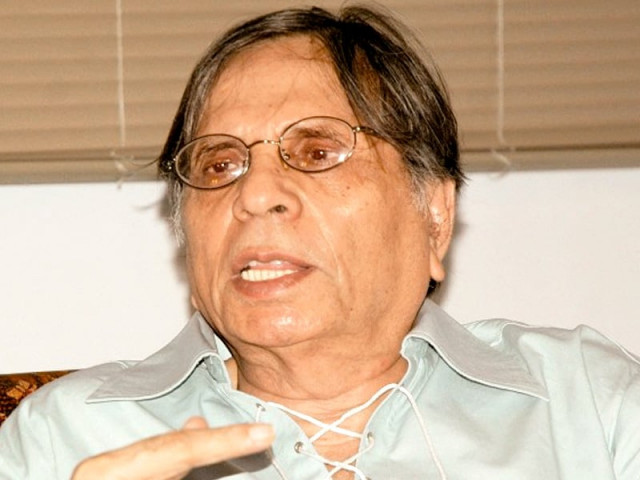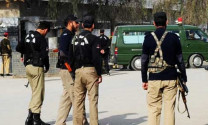‘Mubarak Ali unique as he wrote history of people, not kings’
Literati and historians pay tribute to author and historian Dr Mubarak Ali.

“In a society that seldom provides acknowledgement, it is vital to put on record the value we attribute to the work of Dr Ali,” said Dr Ahmed.
Dr Ahmed, who is the editor of Ali’s book ‘Challenges of History Writing in South Asia: Special Volume in Honour of Dr Mubarak Ali’ was speaking at the concluding day of the sixth International Urdu Conference at Arts Council, where several poets, writers and academics have gathered to discuss the works of Dr Ali.
The ceremony was presided over by Prof Harbans Mukhiya, an Indian historian and former vice-chancellor of Jawaharlal University in New Delhi. A number of prominent speakers including Pakistan Institute of Labour Education and Research (Piler) executive director Karamat Ali, Karachi University Pakistan Study Centre director Dr Syed Jaffar Ahmed and Shaheed Zulfiqar Ali Bhutto Institute of Science and Technology social sciences dean Dr Riaz Shaikh spoke at the ceremony.
“In a society that seldom provides acknowledgement, it is vital to put on record the value we attribute to the work of Dr Ali,” said Dr Ahmed, revealing the main reason of the book’s popularity. “If you address the common people in your book, they will read it.”
While commenting on the writings of Dr Ali, Prof Mukhiya said that the historian had launched a movement against sectarianism in Pakistan. “It is quite difficult to write history in India, but it is even more difficult to do so in Pakistan,” he added.
History writing is a reflection of the mentality of the people and there are many forms which capture emotions, love, time and space, the historian said. While talking about the two-nation theory, he felt that it has not been easy to write against communalism in the Subcontinent. “I don’t regret the Indian partition due to the two-nation theory, but this theory had actually impacted the communal harmony which was prevalent in India for many centuries.”
In his address, Dr Ali said that history is a double-edged sword, which can increase hatred but can also spread love and harmony. “We have tried to provide an answer to the hatred which has been created by previous historians.”
Karamat stated that while other historians prefer to avoid taboo topics, preferring to distort history rather than state inconvenient facts, Dr Ali raises critical questions that are often ignored in the country’s history. Piler’s executive director was also critical of censorship and restriction of literature in Pakistan, pointing to an old law where possession of Marxist literature can lead to a three year jail sentence.
He was also saddened by the general perception of enmity in Pakistan towards India. “If this enmity ends then the reason for Pakistan’s existence will be strengthened,” Karamat said.
Published in The Express Tribune, December 3rd, 2013.



















COMMENTS
Comments are moderated and generally will be posted if they are on-topic and not abusive.
For more information, please see our Comments FAQ